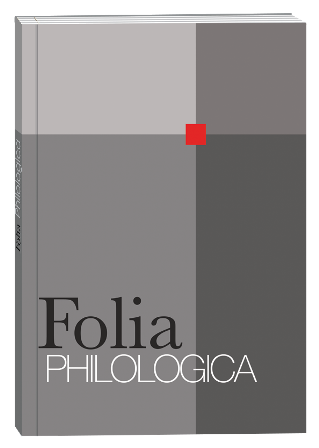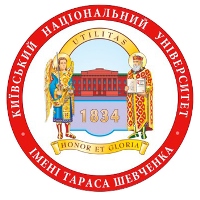SOCIAL AND POLITICAL NATIONALLY-BIASED VOCABULARY IN PRESENT-DAY BRITISH POLITICAL DISCOURSE OF DIFEERENT VIDEOGENRES
DOI:
https://doi.org/10.17721/folia.philologica/2021/2/2Keywords:
social and political nationally-biased vocabulary, political discourse, video genre, video interview, multimodalityAbstract
Social and political nationally-biased vocabulary plays an important role in shaping the cultural paradigm of each country as it relates to various aspects of human activity and embodies the view of events in the history of the country from the point of view of politicians, as well as experts in certain fields. The presence of a large number of social and political nationally-biased vocabulary determines the genre specifics of their construction in mass media. It preconditions the relevance of the social and political nationally-biased vocabulary of Great Britain studies in the context of video genres diversity, among which are debates, political shows, and video interviews. In the discourse under consideration meaning making takes place in integration of different semiotic modes. In particular, verbal – scripts of original video interviews, political shows, and debates, where socio-political nationally-biased vocabulary functions. In turn, visual mode is represented by static and dynamic visual images. The former include photos, diagrams, graphs, etc. Dynamic images embrace change of visual images in videos. Both static and dynamic images accompany verbal representation of nationally-biased vocabulary. Kinesic semiotic mode is manifested via gestures, facial expressions of participants in original video interviews, political shows, and debates. An auditory mode is represented by a melody that accompanies the verbal representation of nationally-biased vocabulary. The aim of the article is to identify the nature and types of social and political nationally-biased vocabulary in present-day British political discourse of various video genres. The concept of "social and political nationally-biased vocabulary" is defined, the classification of social and political nationallybiased vocabulary from the standpoint of multimodality theory is specified. The article reveals specific features of the use of social and political nationally-biased vocabulary by the representatives of British political elite. The paper analyzes several excerpts from the interviews with Edward Heath, the Prime Minister of the United Kingdom in 1970-1974 on Thames Television and the current Prime Minister Boris Johnson on BBC. A comparative analysis of the interviewer's methods of interaction with the guest of the TV program is performed. It has been proved that non-verbal communication plays an important role in present-day political discourse.
References
Balanyk, I. D., Bialyk V. D. (2020). Trudnoshchi ta sposoby perekladu suspilno-politychnykh realii [Difficulties and ways of translating of social and political culture-bound words]: Vcheni zapysky TNU im. Vernadskoho. Seriia Filolohiia: Suspilni komunikatsii, 31 (70). [in Ukrainian].
Vlakhov, S., Floryn, S. (1980). Neperevodymoe v perevode [Untranslatable in translation]. Moskva: Mezhdunarodnyye otnoshenyia, 1980. 343 s. [in Russian].
Dyakiv, Kh. (2021). Movlennievyi zhanr “videointerv’iu”: komunikatyvno-prahmatychna orhanizatsiia [Speech genre “video interview”: communicative and pragmatic organization]. Folia Philologica, 1, 20–28, doi: https://doi.org/10.17721/folia.philologica/2021/1/3.
Zorivchak, R. P. (1989). Realiia i pereklad. Lviv : Vydavnytstvo Lvivskoho universytetu. 216 s. [in Ukrainian].
Kyrda, A. H., Pysmenna, O. O. (2015) Formuvannia kompetentnosti v perekladi na materiali suchasnykh suspilno-politychnykh realii [Translation competence forming with cureent political and social realities as example]. Zbirnyk naukovykh prats Viiskovoho instytutu Kyivskoho natsionalnoho universytetu imeni Tarasa Shevchenka. Vyp. 49. S. 252‒260. [in Ukrainian].
Kretov, A. A., Fenenko, N. A. Lynhvystycheskaia teoryia realii [Linguistic theory of nationally-biased lexicon]. Vestnyk Voronezhskoho hosudarstvennoho unyversyteta, 2013. Vyp. 1. S. 7‒13. [in Russian].
Kuznetsov, H. V (2002). Televyzyonnaia zhurnalystyka. Moskva : Vysshaia shkola, 2002. 304 s. [in Russian].
Pavlova, E. K. (2000). Yazykovaia preemstvennost v protsesse evfemyzatsyy polytycheskykh realyi SshA [Language inheritance in terms of USA political realities euphimisation]. Vestnyk Moskovskoho Unyversyteta. № 3. S. 9. [in Russian].
Shevchenko I. S. (2009) Interdyskursyvnist politychnoho dyskursu [Political discourse and its interdiscursive nature]. Visnyk Kharkivskoho natsionalnoho universytetu im. V.N. Karazina, 2009. № 848. S. 53‒57. [in Ukrainian].
Shnaider, A. Navchannia cherez debaty : riznomanittia pohliadiv : adaptovanyi pereklad z anhliiskoi. Kyiv : BF «Vchyteli za demokratiiu ta partnerstvo», 2009. 320 s. [in Ukrainian].
Yakovets, A. V. Televiziina zhurnalistyka: teoriia i praktyka : pidruchnyk. Kyiv : Vydavnyychyi dim Kyievo-Mohylianskoi akademii, 2007. 240 s. [in Ukrainian].
BBC. (BBC). (2020, July, 24). In full: Boris Johnson interview – BBC News. Access mode: http://www.youtube.com/watch?v=3rm45jiPrdw
Chaume, F. (2004). Discourse markers in audiovisual translating. Meta. № 49.
Fairclough, N. & Fairclough, I. (2012). Political Discourse Analysis. London: Routledge.
Kress, G. & van Leewen, T. (2001). Multimodal Discourse: The Modes and Media of Contemporary Communication. London: Arnold.
The Pragmatics of Political Discourse (2013). Amsterdam: John Benjamins Publishing.
Thames. (Thames). (1974, February, 21). Conservative Party. Edward Heath Interview, 1974. Access mode: https://www.youtube.com/watch?v=P3otNFnn0W0
Van Dijk, T. A. (2003). Political discourse andideology. Doxa Comunicación. Revista Interdisciplinar De Estudios De Comunicación Y Ciencias Sociales, (1).









